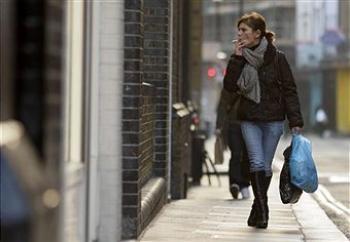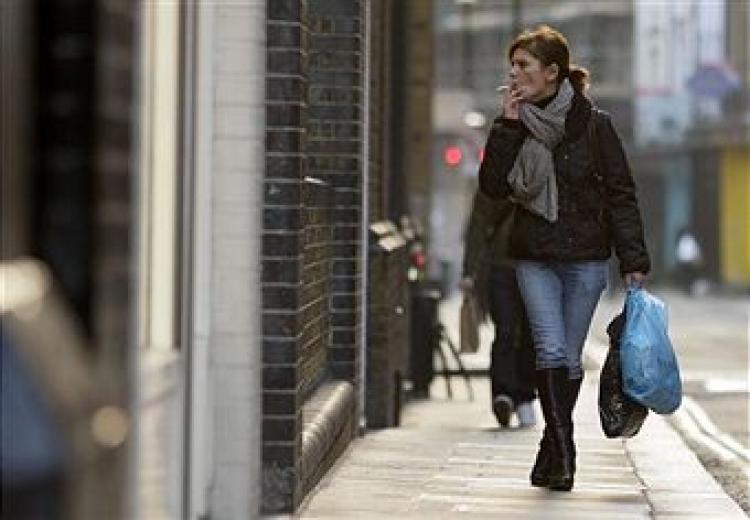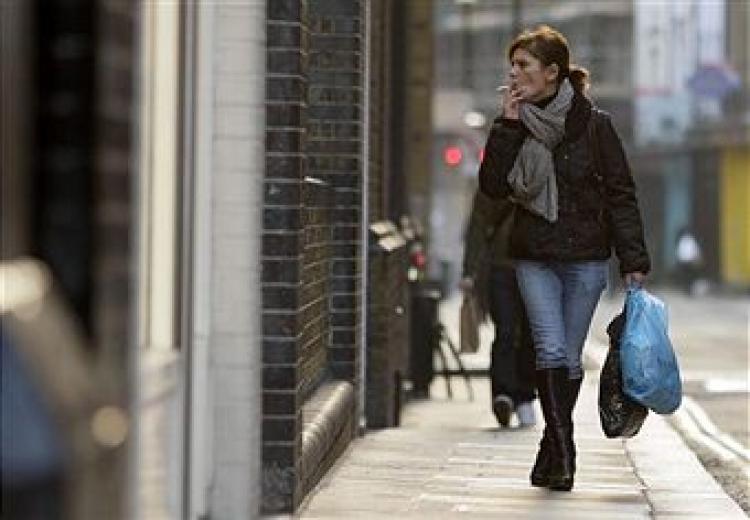LONDON—It’s official. After various indicators of green shoots, Britain’s finances have finally been given a clean bill of health.
But the country has only just squeaked clear of the worst recession for decades – the last of the major developed countries in the world to do so.
On Tuesday, the Office for National Statistics (ONS) published its preliminary estimate for the fourth quarter of 2009, showing that gross domestic product (GDP) increased 0.1 per cent – much lower than analysts expected.
“The result of the test is that the average revision is not statistically different from zero,” the NSO states.
A broad measure of economic growth, GDP is generally defined as the market value of the goods and services produced by a country.
This particular figure brings to an end Britain’s worst recession since the Great Depression when GDP shrank by -6.2 per cent.
The report stated that Government and other services increased 0.2 per cent, compared with a decrease of 0.2 in the previous quarter. Health made the largest contribution to the increase.
It also stated that the distribution, hotels and restaurants sector was the largest contributor to the positive growth in this quarter with 0.4 per cent compared with an increase of 0.7 per cent in the previous quarter.
The Federation of Small Businesses said in its manifesto Small Business, Big Vote, released at the Houses of Parliament on the same day as the NSO report : “Between 2002 and 2007, over 84 per cent of new jobs were created by small businesses and, in spite of the recession, 57 per cent would like to employ in the future, creating at least 800,000 new jobs.”
It says that £10-12 billion are spent every year on government-funded business support. “However, only 5 per cent of this goes to the micro-business sector, which accounts for 95 per cent of all businesses together with the lion’s share of innovation and job creation.
“If Government is seeking to support the drivers of economic growth, it is currently missing its target and wasting a lot of money in the process.”
The preliminary estimate of GDP for the first quarter of 2010 will be published by the NSO on April 23rd, 2010.
But despite the end of the recession, with the country deep in debt, cuts are still high on the policial agenda, with all 3 political parties having stressed for some time that tough times may stretch ahead for decades.
Nick Clegg the Liberal Democrat leader told The Daily Telegraph in January 2009, “We’re entering into an age of austerity when all the political parties are going to have to have a rethink on public spending.”
David Cameron, leader of the Conservative Party, wants to have an emergency budget if his party is elected to government at the forthcoming general election.
Alistair Darling, the present Chancellor, has told top public sector workers in town halls, quangos, and the civil service that their salaries need to pass a “next-door neighbour” test. “If you can’t justify them to your next-door neighbour, you’ve probably got it wrong,” he said.
But the country has only just squeaked clear of the worst recession for decades – the last of the major developed countries in the world to do so.
On Tuesday, the Office for National Statistics (ONS) published its preliminary estimate for the fourth quarter of 2009, showing that gross domestic product (GDP) increased 0.1 per cent – much lower than analysts expected.
“The result of the test is that the average revision is not statistically different from zero,” the NSO states.
A broad measure of economic growth, GDP is generally defined as the market value of the goods and services produced by a country.
This particular figure brings to an end Britain’s worst recession since the Great Depression when GDP shrank by -6.2 per cent.
The report stated that Government and other services increased 0.2 per cent, compared with a decrease of 0.2 in the previous quarter. Health made the largest contribution to the increase.
It also stated that the distribution, hotels and restaurants sector was the largest contributor to the positive growth in this quarter with 0.4 per cent compared with an increase of 0.7 per cent in the previous quarter.
The Federation of Small Businesses said in its manifesto Small Business, Big Vote, released at the Houses of Parliament on the same day as the NSO report : “Between 2002 and 2007, over 84 per cent of new jobs were created by small businesses and, in spite of the recession, 57 per cent would like to employ in the future, creating at least 800,000 new jobs.”
It says that £10-12 billion are spent every year on government-funded business support. “However, only 5 per cent of this goes to the micro-business sector, which accounts for 95 per cent of all businesses together with the lion’s share of innovation and job creation.
“If Government is seeking to support the drivers of economic growth, it is currently missing its target and wasting a lot of money in the process.”
The preliminary estimate of GDP for the first quarter of 2010 will be published by the NSO on April 23rd, 2010.
But despite the end of the recession, with the country deep in debt, cuts are still high on the policial agenda, with all 3 political parties having stressed for some time that tough times may stretch ahead for decades.
Nick Clegg the Liberal Democrat leader told The Daily Telegraph in January 2009, “We’re entering into an age of austerity when all the political parties are going to have to have a rethink on public spending.”
David Cameron, leader of the Conservative Party, wants to have an emergency budget if his party is elected to government at the forthcoming general election.
Alistair Darling, the present Chancellor, has told top public sector workers in town halls, quangos, and the civil service that their salaries need to pass a “next-door neighbour” test. “If you can’t justify them to your next-door neighbour, you’ve probably got it wrong,” he said.






